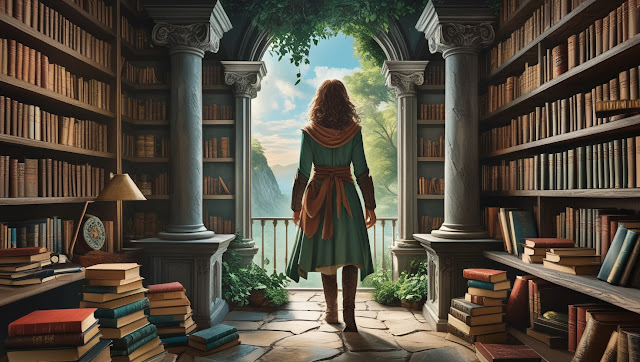Science fiction and dystopian novels do more than transport us to distant galaxies or bleak futures; they hold up a mirror to our own world, exploring themes of survival, resilience, morality, and the impact of human choices. While these books often depict extreme scenarios—post-apocalyptic wastelands, totalitarian governments, or alien invasions—their lessons are deeply relevant to our everyday lives. Here are some unexpected life lessons I’ve learned from reading sci-fi and dystopian literature.
1. The Power of Adaptability – Wool by Hugh Howey
One of the most striking themes in Wool is the ability of humans to adapt to their environment, no matter how harsh. The story takes place in a massive underground silo where people have lived for generations, believing the outside world to be toxic and uninhabitable. When characters begin to question the reality of their world, they must navigate the fine line between survival and truth.
Lesson: Adaptability is key to survival. Life constantly throws unexpected challenges our way, and the ability to adjust—whether to new environments, changes in relationships, or personal struggles—is what keeps us moving forward. Just like the characters in Wool, we can’t always control our circumstances, but we can control how we respond to them.
2. Question Everything – Brave New World by Aldous Huxley
In Brave New World, society is designed for maximum pleasure and minimal discomfort. Citizens are conditioned from birth to accept their roles without question, pacified by entertainment and the drug Soma. While this may seem like a utopia at first glance, the lack of critical thinking and personal choice makes it a cautionary tale.
Lesson: Blind acceptance of authority or societal norms can lead to complacency. This book serves as a reminder to always question the world around us—whether it’s media, government, or even our own biases. True freedom comes from understanding, not ignorance.
3. Strength in the Face of Oppression – The Hunger Games by Suzanne Collins
The Hunger Games presents a world where an oppressive government keeps its citizens in check through fear, poverty, and brutal televised games. Despite the odds, Katniss Everdeen refuses to be a pawn in the system and becomes a symbol of rebellion.
Lesson: Even in situations where we feel powerless, small acts of defiance and bravery can create change. Standing up for what’s right, even when the odds are stacked against us, can inspire others to do the same. The fight for justice often starts with one voice refusing to be silenced.
4. The Fragility of Civilization – The Stand by Stephen King
While The Stand is often categorized as a mix of horror and dystopian fiction, its core theme is how quickly civilization can crumble in the face of disaster. A superflu wipes out most of humanity, and those who survive must navigate a lawless world where human nature—both good and evil—emerges in its rawest form.
Lesson: We take society’s structure for granted, but it’s more fragile than we think. The pandemic showed us firsthand how quickly systems can break down, from supply chains to healthcare. The Stand reminds us of the importance of community, resilience, and ethical leadership in rebuilding after a crisis.
5. Hope Can Exist Even in the Darkest Times – The Road by Cormac McCarthy
This hauntingly beautiful novel follows a father and son journeying across a post-apocalyptic wasteland. With food scarce, dangers everywhere, and no certainty of survival, the only thing keeping them going is their love for each other.
Lesson: Even in the darkest moments, hope can be found in human connection. The novel teaches us that, no matter how bleak things appear, kindness, love, and perseverance can make all the difference. Sometimes, hope is as simple as putting one foot in front of the other.
Final Thoughts: The Value of Sci-Fi and Dystopian Stories
While sci-fi and dystopian books may seem like pure escapism, they offer valuable insights into human nature and society. They encourage us to question authority, remain adaptable, fight against oppression, recognize the fragility of civilization, and hold on to hope in difficult times.
These books might be set in distant futures or alternate realities, but the lessons they teach are timeless. They remind us that, no matter what challenges we face, we have the power to adapt, resist, and find meaning in even the harshest conditions.






No comments:
Post a Comment